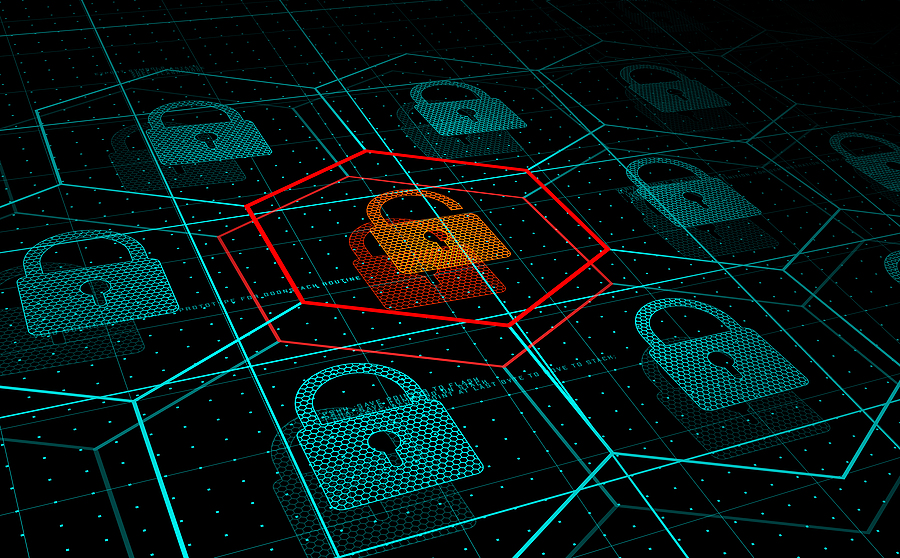Cyber Security Insights for Resilient Digital Defence
Cyber Security Insights for Resilient Digital Defence
Data Centre Security: Protecting Infrastructure from Physical and Cyber Threats
Feature - The ways to fight back against rising DDoS attacks
By Tema Hassan, Senior Product Manager at Zayo Europe.
One of the most prevalent cyber threats, DDoS (Distributed Denial of Service) attacks target an organisation's online presence by flooding its internet service with traffic, preventing user access. These attacks can entirely disrupt a business’ connectivity and often serve as a smokescreen for more malicious incursions, such as ransomware.
You only have to look at the data to see the scale of the issue. Zayo Europe's findings indicate a notable increase in the intensity of DDoS attacks and their impact on businesses from the second half of 2023 to the first half of 2024.
On average, a DDoS attack lasted 45 minutes, representing an 18% increase from this time last year. This results in a staggering cost of £4,600 per minute for unprotected organisations, translating to an average of £207,000 per attack. This data alone highlights the severe financial implications of these attacks.
Why are DDoS attacks on the rise?
DDoS attacks are intensifying for several reasons, one of which, AI, is a double-edged sword. On the one hand, criminals are using AI to make their attacks more sophisticated and bypass traditional defence mechanisms. On the other hand, mitigation platforms can leverage AI to efficiently detect and counter emerging threats. Since DDoS attacks remain a profitable tactic for cybercriminals, businesses can expect these attacks to continue as a harsh reality.
Political tensions also appear to be fuelling the increase in DDoS attacks. Government actors and activists frequently use these attacks to make statements or signal intentions. For instance, Imperva's 2024 DDoS report found notable surges in DDoS attacks in Ukraine (519%), Israel (118%), and China (84%).
How can businesses protect themselves?
While it’s not possible to prevent criminals from targeting businesses with DDoS attacks, the duration of an attack can be minimised to the point where it is nearly imperceptible. This is done via an automated redirect of traffic to a system known as a ‘DDoS scrubber’ that ensures that only legitimate traffic passes through.
No matter how long or how severe the attack is, a business that takes this zero-tolerance approach will be properly defended. The attack could last for hours - much like those experienced by governments - but the automated DDoS protection will frustrate the attackers as their efforts will have limited impact. So data centre professionals should certainly be suggesting to clients that they invest in increasing their security.
A robust network infrastructure is also critical for data centres and their clients to effectively counter DDoS attacks. As traffic increases due to 5G, AI, and other technological advancements, threat detection becomes even more important. Organisations need to rely on agile, modern networks as the backbone for connectivity and security. Data centres must adopt these modern, flexible networks and move away from legacy and outdated technologies that create vulnerabilities. Without a flexible, up-to-date infrastructure, effective security becomes impossible.
Don’t wait until it’s too late
As the data indicates, cyber crime is on the rise and shows no sign of slowing down any time soon. While certain sectors - such as manufacturing, telecommunications, and government entities - are more at risk, DDoS attacks can affect any digital business.
Any organisation that holds sensitive data could become a target, even if the company is early in its digital journey. Waiting to find out if you’ll be targeted is akin to leaving the key in your front door at night. Businesses must be proactive and take the necessary steps to protect the organisation, the employees and clients. Otherwise, they risk discovering first-hand just how devastating DDoS attacks can be.
For more from Zayo Europe, click here.
Simon Rowley - 10 October 2024
Cyber Security Insights for Resilient Digital Defence
Data
Data Centre Security: Protecting Infrastructure from Physical and Cyber Threats
News
Infinidat launches cyber security awareness campaign
Infinidat, a provider of enterprise storage solutions, marked the beginning of Cybersecurity Awareness Month by kicking off a campaign to raise awareness about the critical need for enterprises to increase their cyber resilience with next-generation data protection and recovery capabilities in the battle against cyberattacks.
Throughout the month of October, Infinidat will be contributing to awareness-building efforts across its social media channels about the emergence of cyber resilient storage as the last line of defence against ransomware and malware.
“As we embark into Cybersecurity Awareness Month, we’re excited to help enterprises better understand how to incorporate a cyber-centric, recovery-focused strategy with our InfiniSafe capabilities into their overall cybersecurity approach,” says Eric Herzog, CMO at Infinidat. “Cyber attacks have evolved to increasingly target enterprise storage infrastructure. However, the combination of cyber resilience and cyber security closes the gap and vastly improves the ability to mitigate the impact of cyber attacks, especially ransomware. Broader awareness of best practices in cyber resilience and cyber recovery will be one of the crowning achievements of this month dedicated to cyber security.”
Protecting data is one of the most critical actions an IT team must do in their data centre today, and expectations for restoring data and backing up data at multi-petabyte scale have changed. IT teams need to increase next-generation data protection capabilities, and there needs to be data integrity and high reliability with 100% availability, which Infinidat provides. Best practices require an enterprise to ensure data validity and near-instantaneous recovery of primary storage and backup repositories, regardless of the size. This accelerates digital disaster recovery when a cyberattack happens.
Krista Macomber, Research Director, Cybersecurity at The Futurum Group, comments, “Cyber security is established as a board-level priority. Given that, it is the data that attackers are after. CIOs and CISOs have begun to critically evaluate the cyber resilience of their organisation's enterprise storage implementations. With this in mind, the need for cyber resilience has established new table-stakes criteria within the storage infrastructure. Strategic planning for capabilities, like Infinidat's InfiniSafe Automated Cyber Protection that helps to mitigate data loss and downtime resulting from a cyber incident, has become critical.”
Bob Elliott, VP Strategic Alliances, at Mainline Information Systems, adds, “We’re seeing a growing focus on cyber resilience and rapid recovery in enterprise data infrastructure, especially against threats like ransomware. Adopting a recovery-first strategy helps protect businesses from massive cyber attacks. As IT leaders recognise the importance of next-gen data protection, we expect increased adoption of these solutions. In today’s security-driven landscape, boosting cyber resilience is essential for safeguarding storage systems.”
Core pillars of next generation data protection in a cyber-first architecture include: immutable snapshots, logical air-gapping, a fenced forensic environment, and near-instantaneous cyber recovery. These dimensions of cyber resilience are available within Infinidat’s core storage operating system. Moreover, the cyber resilient capabilities that complement, utilise, extend and enable these pillars include cyber detection and automated cyber protection.
Infinidat’s InfiniSafe suite provides extensive cyber resilience capabilities, including InfiniSafe Cyber Detection and InfiniSafe Automated Cyber Protection (ACP) along with the stack of all the core pillars of next-generation data protection. InfiniSafe provides secure, end-to-end capabilities to orchestrate with existing security solutions to detect, contain, mitigate and recover from a cyber attack.
For more from Infinidat, click here.
Simon Rowley - 2 October 2024
Cyber Security Insights for Resilient Digital Defence
Data Centre Security: Protecting Infrastructure from Physical and Cyber Threats
Enterprise Network Infrastructure: Design, Performance & Security
News
90% of cybersecurity incidents could be avoided, survey reveals
Organisations are navigating a landscape of mixed emotions as the Network and Information Security Directive 2022/2555 (NIS2) enforcement date approaches. A regulation that's aimed at strengthening cybersecurity across the EU by expanding the scope and increasing the rigour of security requirements, NIS2 goes into effect on 18 October 2024.
Veeam Software, the data resilience expert, commissioned a new survey from Censuswide that revealed that only 43% of EMEA IT decision-makers believe NIS2 will significantly enhance EU cybersecurity. This is despite an overwhelming 90% of respondents reporting at least one security incident that the NIS2 directive could have prevented in the past 12 months. Alarmingly, 44% of respondents experienced more than three cyber incidents, with 65% of those categorised as “highly critical”.
The survey results, which encompass the views of over 500 IT decision-makers from Belgium, France, Germany, the Netherlands, and the UK, revealed the state of play less than a month before this directive takes effect. Although nearly 80% of businesses are confident in their ability to eventually comply with NIS2 guidelines, up to two-thirds state they will miss this imminent deadline.
Barriers to NIS2 compliance
Achieving NIS2 compliance requires businesses to implement essential measures, such as defining incident response plans, securing supply chains, assessing vulnerabilities, and evaluating overall security levels. This includes all affiliated organisations, partners, and supply chains. However, several barriers to compliance persist. Key challenges cited by IT decision-makers include technical debt (24%), lack of leadership understanding (23%), and insufficient budget/investments (21%).
Notably, 40% of respondents reported decreased IT budgets since the political agreement for NIS2 was proclaimed effective in January 2023, despite its stringent penalties, which are comparable to those of the EU's flagship data privacy legislation, the General Data Protection Regulation (GDPR). 63% of respondents view the GDPR as strict, and 62% express the same sentiment about NIS2.
Competitive pressures amid cyberthreats
The slow pace of NIS2 adoption is likely due to the multitude of competing priorities and business pressures that face these organisations. Respondents rank NIS2 lower in urgency than 10 other issues, including the skills gap, profitability, and digital transformation. Worryingly, 42% of respondents who consider NIS2 insignificant for EU cybersecurity improvements attribute this to inadequate consequences of non-compliance, which has led to widespread apathy towards the directive.
Additional key findings from the survey include:
74% of respondents see NIS2 as beneficial, but 57% doubt it will have any substantial impact on overall EU cybersecurity posture.
Sceptics cite additional concerns such as NIS2's lack of comprehensiveness (35%), belief that compliance doesn’t guarantee security (34%), and overlap with existing regulations (25%).
Other barriers include a lack of focus on NIS2 compliance (20%), tight timelines (19%), cybersecurity skills shortage (19%), directive complexity (19%), and organisational silos (19%).
Despite conflicting views, most respondents perceive NIS2 positively in the context of their organisation's regulatory obligations, feeling optimistic (33%), confident (32%), and encouraged (27%).
Andre Troskie, EMEA Field CISO at Veeam, states, “NIS2 brings responsibility for cybersecurity beyond IT teams into the boardroom. While many businesses recognise the importance of this directive, the struggle to comply found in the survey highlights significant systemic issues. The combined pressures of other business priorities and IT challenges can explain the delays, but this does not lessen the urgency.
“Given the rising frequency and severity of cyberthreats, the potential benefits of NIS2 in preventing critical incidents and bolstering data resilience can't be overstated. Leadership teams must act swiftly to bridge these gaps and ensure compliance, not just for regulatory sake but to genuinely enhance organisational robustness and safeguard critical data.”
For more from Veeam, click here.
Simon Rowley - 30 September 2024
Cyber Security Insights for Resilient Digital Defence
Data
Data Centre Security: Protecting Infrastructure from Physical and Cyber Threats
Enterprise Network Infrastructure: Design, Performance & Security
News
Veeam announces integration with Palo Alto Networks
Veeam Software, a data resilience expert, has announced a new integration with Palo Alto Networks, a global cybersecurity specialist, to simplify security operations and strengthen data resilience.
This integration addresses the pressing need for organisations to take an integrated approach to protecting their data backups and proactively respond to cyber threats through the capabilities offered by Veeam’s new apps and Palo Alto Networks Cortex XSIAM and Cortex XSOAR. With this new integration, Veeam is the first Palo Alto Networks partner to independently design and develop a data collector, dashboards, and reports for Cortex XSIAM.
Dave Russell, SVP of Strategy at Veeam, explains, "Cyber threats are a reality for every single organisation. It takes teamwork to fight this escalating battle against ransomware. We are excited to integrate with Palo Alto Networks to provide customers with capabilities to further strengthen their data resilience. This powerful integration enables our 550,000 customers to better protect their backups and respond to cyberattacks faster, tightening their security posture and helping to ensure reliable, rapid and trusted recovery.”
In today's digital landscape, ransomware attacks are on the rise, with 96% specifically targeting an organisation's backups according to the Veeam 2024 Ransomware Trends Report. This alarming reality poses a significant challenge for IT and security leaders worldwide. Traditional tools struggle to scale for large enterprises, resulting in a high volume of alerts and overwhelming manual processes for security teams.
To combat these challenges and fulfil customer demand, Veeam and Palo Alto Networks have integrated technology to centralise, scale, and automate data monitoring and incident response. By integrating Palo Alto Networks AI-driven security operations centre (SOC) platform with Veeam's recovery capabilities, organisations can identify and respond to cyberattacks faster, helping to ensure the resilience of their business-critical backup data.
"We are thrilled to collaborate with Veeam, empowering organisations to respond and react more quickly to threats facing their critical data," says Pamela Cyr, VP of Technical Partnerships at Palo Alto Networks. "By combining the power of Palo Alto Networks' AI-driven SOC platform with data resilience capabilities from Veeam, we can help customers identify and respond to threats, ensuring the resilience of business-critical data. The new integration demonstrates our shared commitment to providing organisations with tools and technologies that help them proactively combat evolving cyber threats and strengthen their security posture."
The integration introduces two new applications – the Veeam apps integrated with Cortex XSIAM and Cortex XSOAR that leverage a bi-directional API connection to monitor, detect, and respond to security incidents impacting critical business data and data backups. The Veeam app integrated with Cortex XSIAM brings data from Veeam Backup & Replication and VeeamONE environments into Cortex XSIAM, providing a centralised view of data and backup security-related activity.
The Veeam app, integrated with Cortex XSOAR, enables regular API queries against Veeam Backup & Replication and Veeam ONE, monitoring for significant security events or alerts. Both applications are included at no charge to Veeam Data Platform Advanced and Premium customers.
For more from Veeam, click here.
Simon Rowley - 26 September 2024
Artificial Intelligence in Data Centre Operations
Cyber Security Insights for Resilient Digital Defence
Data
Data Centre Operations: Optimising Infrastructure for Performance and Reliability
Data Centre Security: Protecting Infrastructure from Physical and Cyber Threats
News
Custocy partners with Enea for AI-based NDR integration
Custocy, a pioneer in artificial intelligence (AI) technologies for cybersecurity, is to embed Enea Qosmos deep packet inspection (DPI) and intrusion detection (IDS) software libraries in its AI-powered network detection and response (NDR) platform.
This integration will enable Custocy to improve accuracy and performance and support product differentiation through detailed traffic visibility and streamlined data inspection.
Custocy uses layered, multi-temporal AI functions to detect immediate threats as well as persistent attacks. This approach streamlines the work of security analysts through attack path visualisation, improved prioritisation, workflow support and a radical reduction in the number of false-alarm alerts (‘false positives’). By integrating Enea software into its solution, Custocy will have the exceptional traffic data it needs to extend and accelerate this innovation while meeting extreme performance demands.
Enea’s deep packet inspection (DPI) engine, the Enea Qosmos ixEngine, is the most widely embedded DPI engine in the cybersecurity industry. While it has long played a vital role in a wide range of security functions, it is increasingly valued by security leaders today for the value it brings to AI innovation. With market-leading recognition of more than 4,500 protocols and delivery of 5,900 metadata, including unique indicators of anomaly, Qosmos ixEngine provides invaluable fuel for AI innovators like Custocy.
In addition, the Enea Qosmos Threat Detection SDK delivers a two-fold improvement in product performance by eliminating double packet processing for DPI and IDS, optimising resources and streamlining overheads. And thanks to Enea Qosmos ixEngine’s packet acquisition and parsing library, parsing speed is accelerated while traffic insights are vastly expanded to fuel next-generation threat detection and custom rule development.
These enhancements are important, as demand for high-performing NDR solutions has never been higher. NDR plays a pivotal role in detecting unknown and advanced persistent threats (APTs), which is a challenge certain to become even more daunting as threat actors adopt AI tools and techniques. Custocy is well-positioned to help private and public organisations meet this challenge with a unique technological core built on AI that has earned the company a string of awards; the latest being Product of the Year at Cyber Show Paris.
Jean-Pierre Coury, SVP Embedded Security Business Group, comments, “Custocy has developed its solution from the ground up to exploit the unique potential of AI to enhance advanced threat detection and security operations. AI is truly woven into the company's DNA, and I look forward to the additional value it will deliver to its customers as they leverage the enhanced data foundation delivered by Enea software to support their continuous AI innovation.”
Custocy CEO, Sebastien Sivignon, adds, “We are thrilled to join forces with Enea to offer our customers the highest level of network intrusion detection. The Enea Qosmos ixEngine is the industry gold standard for network traffic data. It offers a level of accuracy and depth conventional DPI and packet sniffing tools cannot match. Having such a rich source of clean, well-structured, ready-to-use data will enable Custocy to dramatically improve its performance, work more efficiently and devote maximum time to AI model innovation.”
Simon Rowley - 4 September 2024
Cyber Security Insights for Resilient Digital Defence
Data
Data Centre Security: Protecting Infrastructure from Physical and Cyber Threats
Data Centres
News
Veeam expands data resilience for Microsoft 365
Veeam Software, a data resilience specialist, has announced the release of Veeam Backup for Microsoft 365 v8, delivering comprehensive and flexible immutability for Microsoft 365 data.
Organisations can now ensure their Microsoft 365 data is resilient by employing a zero-trust, multi-layered immutable strategy, ensuring that backup data is safe from potential changes or deletions so that its original integrity stays intact. Currently protecting more than 21 million Microsoft 365 users, Veeam safeguards customers’ critical Microsoft 365 data to ensure that their business keeps running no matter what happens.
"Losing the critical data, files and communications housed in Microsoft 365 is a catastrophic scenario for any organisation," says John Jester, CRO at Veeam. "That’s why we’re protecting over 21 million users today, more than any vendor in market, making Veeam the number one data resilience solution for Microsoft 365.
"Veeam Backup for Microsoft 365 v8 ensures that despite expected cyber-attacks and data disruptions, organisations have ready access to critical business information to ensure business continuity. Now with the most comprehensive backup immutability for Microsoft 365, this release includes new architecture designed for efficiency and scale, as well as added support which is based directly on customer requests.”
Veeam Backup for Microsoft 365 v8 combines immutable backups with existing immutable copies, delivering total defence for organisations’ backups. It provides the flexibility to store backup data on any object storage, including Azure Blob Storage, Amazon S3, IBM Cloud Object Storage, or S3-compatible storage.
In addition to enhanced immutability, Veeam enables increased enterprise scale and efficiency with Veeam Proxy Pools. This architectural update boosts backup processing speed by distributing traffic across multiple proxies. By intelligently sharing the load and staying under the radar of throttling, enterprises can achieve better backup performance and efficiently scale up large environments with tens of thousands of users.
Responding to customers, Veeam has expanded its support with several new features. Organisations now have the ability to use Linux-based backup proxies, providing more choices and a lower total cost of ownership. Additionally, Veeam Backup for Microsoft 365 v8 now supports private and shared Microsoft Teams channels, offering comprehensive protection for this popular communication and collaboration platform.
Key features of Veeam Backup for Microsoft 365 v8 include:
• Comprehensive immutability: The most comprehensive backup immutability for Microsoft 365 on the market.
• Enterprise scale: Purpose-built architecture designed to handle the largest enterprise datasets.
• Added support: Private and shared Teams channels, Linux-based backup proxies, and MFA access to the UI.
Learn more about the new Veeam Backup for Microsoft 365 v8 and discover how organisations of all sizes can keep their data secure, protected, and accessible during the VeeamON Data Resilience Summit, taking place virtually October 1 (AMER and EMEA) and October 2 (APJ). Register now for free by clicking here.
For more from Veeam, click here.
Simon Rowley - 3 September 2024
Cyber Security Insights for Resilient Digital Defence
Data Centre Security: Protecting Infrastructure from Physical and Cyber Threats
News
Logpoint and Advitum partner to advance cyber defences
Logpoint has announced a new strategic partnership with Managed Service Provider (MSP), Advitum, with the intention of helping to boost security for organisations in Sweden. Advitum is creating a log management and security service based on Logpoint to offer log management, threat detection, investigation and response (TDIR), and compliance capabilities.
“We’re thrilled to partner with Advitum to help Swedish organisations advance their defenses against cyber threats and demonstrate compliance,” says Fredrik Jubran, Logpoint Regional Manager MSSPs. “Advitum is a very capable MSP with great customer satisfaction, and we’re proud to join forces with it to alleviate Swedish organisations of pressing cybersecurity challenges, such as expanding data and cybersecurity regulations and the shortage of qualified experts in the field.”
Founded in Kalmar in 2010, Advitum is an MSP with dedicated security services, ensuring customers have complete control and the ability to combat cyber threats. Adding Logpoint Security Information Event Management (SIEM) gives Advitum the resources to add more value to customers with a service built around log management, TDIR, and compliance. Advitum can manage the solution locally to increase data protection.
“We work with several critical infrastructure organisations, facing high requirements for visibility and the ability to report IT incidents,” says Markus Persson, Advitum CEO. “Currently, small and medium-sized Swedish organisations are struggling to either build a SOC or buy a SOC or Managed Detection and Response (MDR) service. Combined with regulations and how cybercrime is accelerating, our partnership has a lot of potential to help address that.
“Logpoint has a flexible solution, working across premises, which means that our customers can have certain parts in the cloud or go with a completely on-prem-based solution. In addition, Logpoint is a supplier that can adapt and is very close to its customers and partners, which is crucial for us.”
Logpoint is Europe’s largest SIEM vendor, offering solutions to collect and analyse security data to help organisations detect, investigate, and respond to cyberattacks faster and comply with NIS 2, GDPR, and other data and cybersecurity regulations. Logpoint is the only European SIEM vendor with a Common Criteria EAL3+ certification, demonstrating high data protection and robust systems geared to withstand current and emerging threats.
For more from Logpoint, click here.
Simon Rowley - 29 August 2024
Cyber Security Insights for Resilient Digital Defence
Data
News
Kiteworks Private Content Network vision validated by investment
Kiteworks, a provider of secure content communications, has announced a $450 million (£348m) growth-equity investment from global software investors, Insight Partners and Sixth Street Growth.
The investment, a partial liquidity event, will reportedly strengthen Kiteworks’ market position in secure data transfer and collaboration as the only security platform authorised by FedRAMP to provide unified support for file sharing, managed file transfer, and email data communications to meet a broad range of global compliance requirements.Jonathan Yaron, CEO and Chairman of Kiteworks, states, “This minority stake investment affirms Kiteworks’ role in providing a revolutionary solution to the world’s growing challenge of tracking and controlling sensitive data in motion and use. With recent ground-breaking innovations such as Next-Gen Digital Rights Management, combined with the growing industry and regulatory focus on tracking and controlling the data layer, the road to realising our vision has never been clearer. We’re excited to accelerate our growth and continue innovating to meet the evolving needs of our customers with the support of Insight Partners and Sixth Street Growth.”The new investment comes as organisations face an expanding cybersecurity risk due to complex third-party ecosystems and an increasingly stringent compliance landscape. Cybercriminals are targeting sensitive content in growing numbers, with supply chains offering significant opportunities for malicious actors. Meanwhile, compliance regulations such as CMMC, NIS 2, and HIPAA demand robust data protection measures.The Kiteworks PCN addresses critical cybersecurity challenges facing organisations worldwide by unifying the primary content communication channels of file share, file transfer, managed file transfer, email, APIs, and web forms into a dedicated secure platform. The investment from Insight Partners and Sixth Street Growth not only validates the company’s vision, but also signals a broader recognition of the essential role that secure content communication plays in today’s digital landscape. As cyber threats evolve and regulatory environments become more complex, Kiteworks stands ready to help organisations worldwide safeguard their most valuable digital assets.Eoin Duane, Managing Director at Insight Partners, comments, “We were immediately impressed by Kiteworks’ exceptional growth and innovative approach to securing content communications. In today’s complex digital landscape, Kiteworks addresses a critical market need and stands out as a leader in providing effective solutions that significantly improve risk management. We’re excited to partner with the Kiteworks team as they continue to help shape the future of cybersecurity.Alex Katz, Managing Director at Sixth Street Growth, adds, “Jonathan and the Kiteworks team are proven innovators and have architected a platform which is purpose-built to meet the challenges of the most secure and compliance-sensitive organisations. We’re excited to support their continued success and help Kiteworks capitalise on the significant market opportunities ahead.”Eoin Duane and Peter Sobiloff from Insight Partners and Alex Katz from Sixth Street will join the Kiteworks board of directors.
For more from Kiteworks, click here.
Simon Rowley - 16 August 2024
Cyber Security Insights for Resilient Digital Defence
Data Centre Security: Protecting Infrastructure from Physical and Cyber Threats
News
DDoS attacks have surged by 106%, data reveals
Zayo Group, a global communications infrastructure provider, has released its latest bi-annual Distributed Denial of Service (DDoS) Insights Report, which includes details of a 106% increase in attack frequency from H2 2023.
The report also found that an average DDoS attack now lasts 45 minutes - an 18% increase from this time last year - costing unprotected organisations approximately $270,000 (£210,000) per attack at an average rate of $6,000 (£4,700) per minute.
It takes very little time, expertise or investment to run a DDoS attack, and with the AI boom, bot-based attacks have made it even easier to attack more often, in a more sustained manner, and with more requests per second. Beyond intensifying frequency and duration, AI is also driving the increased pervasiveness of DDoS attacks across many industries. In fact, for the first time in this report’s history, HR and staffing, legal and consulting, and transportation firms surfaced as victims of the top 10% of the largest DDoS attacks seen.
Tema Hassan, Senior Product Manager at Zayo Europe, says, “Recent trends in Distributed Denial-of-Service (DDoS) attacks in Europe reveal a significant escalation in both frequency and sophistication. The number of attacks has surged, driven largely by geopolitical conflicts. This has led to an increase in attacks on critical sectors like financial services, telecommunications, and internet service providers, which are vital to national infrastructure.
“New attack techniques, such as those exploiting vulnerabilities in modern web protocols like HTTP/2, have emerged, adding complexity to the threat landscape. Traditional methods like DNS-based attacks also remain prevalent and have grown in scale. In response, countries within Europe are implementing stricter cybersecurity regulations to bolster defence mechanisms against these evolving threats.”
Max Clauson, SVP of Network Connectivity at Zayo, adds, “As we predicted last year, DDoS attacks in the age of AI have become more persistent and frequent across all industries, and our latest report confirms this heightened level as the new norm. What’s worse, if this trend continues, we expect attacks could increase another 24% by the end of the year. The only way to fight back is to add protection to your tech stack. When your business is protected, attackers have no other option but to move on to find an easier target.”
Key findings by industry:
• Telecommunications companies are still the most-targeted industry, making up 57% of all attacks. Other familiar industries experiencing the most frequent attacks include education (19%), manufacturing (5%), and cloud/SaaS (5%).• Manufacturing has replaced retail as the industry facing the largest DDoS attacks, followed by healthcare (up 128.5% compared to H1 2023). Not only did this industry experience a 308% increase in attack duration from 2023 to 2024, these companies also suffered a 200% increase in DDoS attack size.• Government entities continued to be the victims of the longest duration attacks, with an average attack time of over six hours. This is up 41% from the H1 2023.
For nearly 30 years, DDoS attacks have been effective and the introduction of AI to deploy and elevate these attacks is only allowing them to evolve, growing more powerful, subversive, and frequent. Zayo says that every business must understand that it is a target, regardless of industry or size. The financial and reputational damage caused by DDoS attacks can be devastating, leading to significant revenue losses and long-term harm to brand trust. Additionally, the cost of mitigating attacks and restoring services is substantial, draining resources that could be better spent on growth and innovation. The only fighting chance businesses have is to implement a proper network protection strategy, Zayo tells us.
To view the full report and learn more about how Zayo can help protect your business from cyber attacks, click here.
For more from Zayo, click here.
Simon Rowley - 16 August 2024
Cyber Security Insights for Resilient Digital Defence
Events
News
DTX + UCX London is back for 2024
DTX London, the UK’s leading digital transformation event, has announced its doors will open on 2-3 October 2024, for what is set to be one of the most exciting technology exhibitions of the year.
To maximise the experience, DTX will be co-located with Unified Communications EXPO (UCX) - the UK’s biggest show for colleague and customer communications, plus Digital Commerce Expo - which explores the technologies revolutionising customer experience.
DTX + UCX will welcome decision makers from the biggest brands in the UK, including Lloyds, BT, Microsoft, DWP, Booking.com and Deliveroo. These forward-thinking organisations will take centre stage, offering insights into how they are harnessing technology and data to drive forward their digital agendas whilst putting trust and security at the heart.
The event will be a hotspot to get involved in and learn about today’s most important digital conversations, with exclusive panels, workshops, technical deep-dives and community meetups.
Whether it’s AI, cyber security, DevOps or cloud, DTX provides insights across the entire technology stack, with UCX covering unified communications and collaboration tools for both colleague and customer experience. The events combined will provide visitors with ideas, case studies and unrivalled knowledge from those at the forefront of digital transformation - all under one roof.
The event has been designed around today’s most topical issues and its audience will gain unique insight around how to:
• Master the art of continuous reinvention to keep up with tech advancements• Modernise IT tool stacks, maximise legacy infrastructure and reduce tech debt• Cut through the noise and identify the AI use cases for your business• Architect your way to next-gen software engineering and delivery whilst improving DevX• Establish responsible frameworks for data and AI through effective governance and architecture• Build a secure ecosystem that is responsive to today’s threat landscape• Educate and empower colleagues with the latest communications and collaboration tools• Meet changing customer demands for interaction and engagement• Streamline your IT service desk for faster and more intuitive responses• Attract and retain the best and diverse tech talent
DTX + UCX helps organisations stay ahead of the competition, offering insight to help them rethink their current operational strategies, reimagine their future possibilities and realise their potential for change.
Tackling this year’s event theme – 'The Road to Reinvention' – DTX + UCX will also present a series of case studies, roundtables, hacks, debates, and workshops.
To guarantee a front-row seat and join the game-changers and tech pioneers at this year’s most exciting digital event, get your free pass by clicking here.
Simon Rowley - 25 July 2024

Head office & Accounts:
Suite 14, 6-8 Revenge Road, Lordswood
Kent ME5 8UD
T: +44 (0)1634 673163
F: +44 (0)1634 673173









